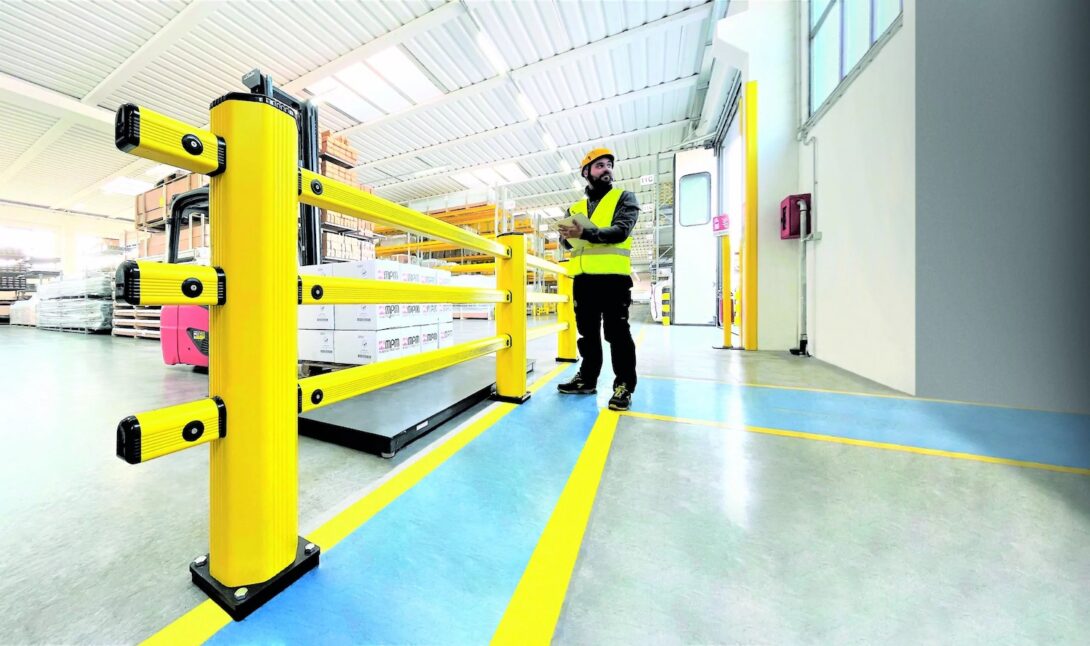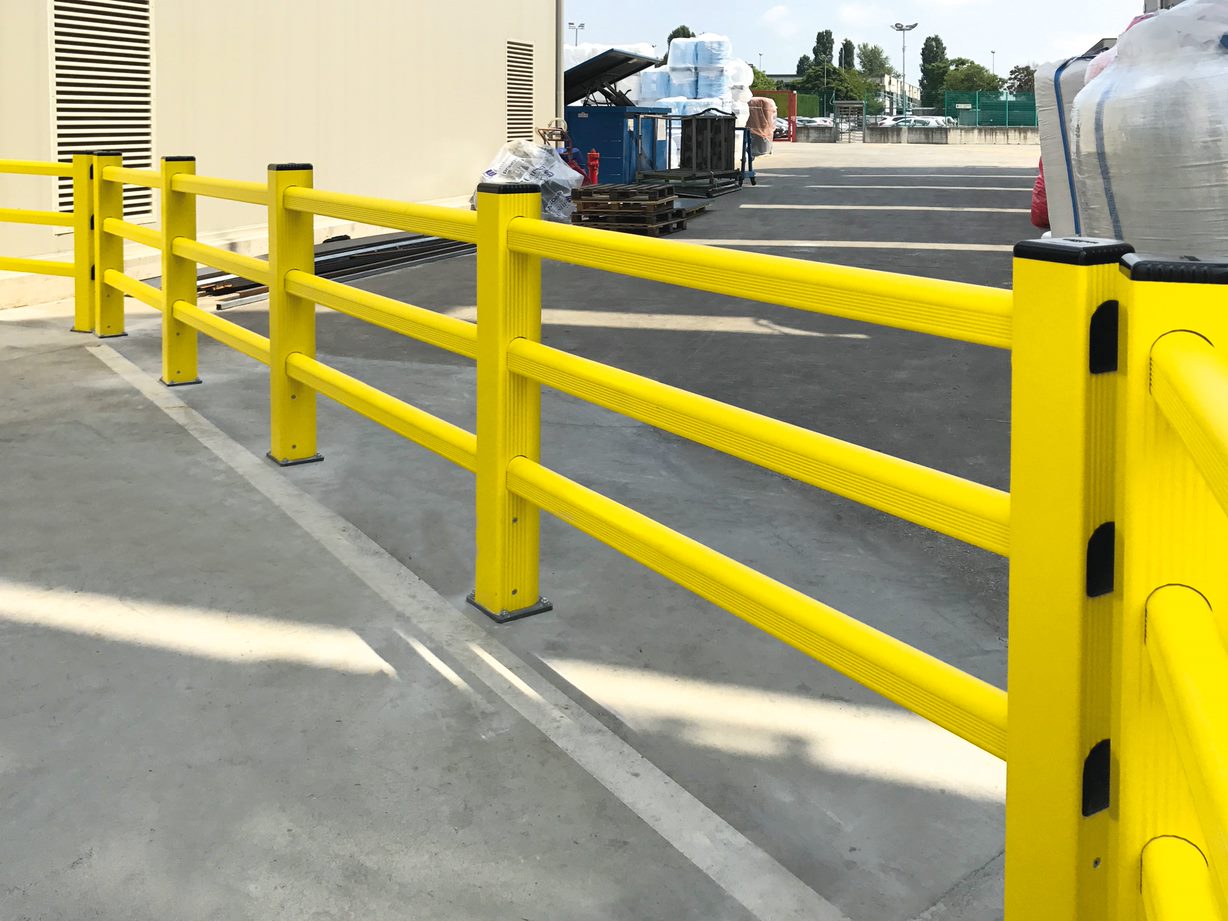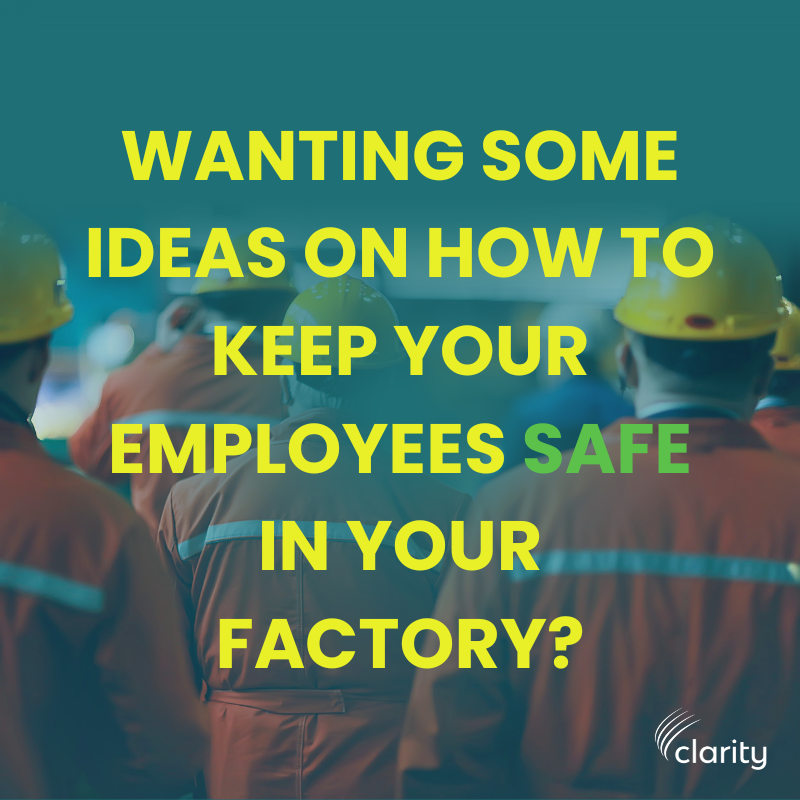How do I make my factory PAS 13 compliant?
 By
Damian White
·
3 minute read
By
Damian White
·
3 minute read
Industry standards are constantly changing, and it can sometimes be difficult to keep up with them, and ensure that your warehouse complies with them all. In this article we are going to dive deeper specifically into the PAS 13 standard, and the steps you can take to implement it in your factory.
What is PAS 13?
PAS 13, short for Publicly Available Specification 13, is a set of guidelines and standards established to enhance safety in industrial settings. Specifically focusing on flexible polymer barriers, PAS 13 outlines the requirements for creating secure work environments by implementing robust protective measures.
These barriers are designed to withstand impact from machinery or vehicles, effectively preventing accidents and protecting workers. By complying with PAS 13 regulations, factories can significantly reduce the risk of workplace injuries and ensure regulatory compliance.
Industrial barriers play a crucial role in safeguarding employees and equipment within manufacturing facilities. The use of high-quality materials such as A-Safe ensures durability and longevity, making them an ideal choice for maintaining safety standards.
Incorporating PAS 13 compliant solutions not only enhances workplace safety but also demonstrates a commitment to upholding industry best practices. Stay tuned to discover how you can achieve PAS 13 compliance in your factory!
Why do I need to become PAS 13 compliant?
Ensuring your factory is PAS 13 compliant is crucial in maintaining a safe and efficient workplace for both employees and visitors. By adhering to these standards, you demonstrate your commitment to prioritising safety above all else. Compliance not only protects individuals from potential hazards but also shields your business from costly liabilities and legal issues.
Achieving PAS 13 compliance showcases your dedication to upholding industry best practices and staying ahead of regulations. It sets you apart as a responsible manufacturer that values the well-being of everyone involved in the operations. Embracing these standards promotes a culture of safety within your organisation, fostering trust among stakeholders and enhancing overall reputation.
Investing in becoming PAS 13 compliant goes beyond meeting requirements; it reflects a deep-seated belief in operating ethically and responsibly. By taking proactive steps towards compliance, you demonstrate leadership in creating a secure environment that prioritises the welfare of all individuals on-site.
Steps to achieve PAS 13 compliance
To achieve PAS 13 compliance for your factory, the first step is to conduct a thorough risk assessment. Identify potential hazards and determine where flexible polymer barriers or industrial barriers are needed to enhance safety. Next, invest in high-quality safety products like A-SAFE barriers that meet PAS 13 standards.
After selecting the appropriate barriers, ensure they are installed correctly by following manufacturer guidelines. Train your staff on proper usage and maintenance of these barriers to maximize their effectiveness. Regularly inspect the barriers for any damage or wear and tear, replacing them as necessary.
Create clear safety protocols and procedures that incorporate PAS 13 requirements into daily operations. Encourage a culture of safety among employees by promoting awareness and accountability. Continuously monitor and review your compliance efforts to adapt to any changes in regulations or industry standards.
How to sustain it...
So, you've put in the effort to make your factory PAS 13 compliant. But how do you ensure that this compliance is sustained over time?
Consistency is key. Regularly review and update your processes to align with the PAS 13 standards. Make sure all employees are well-trained on these guidelines and conduct periodic audits to check for any deviations.
Encourage a culture of safety within your workplace. Emphasize the importance of adhering to PAS 13 requirements not just as a mandate but as a commitment to ensuring the well-being of everyone on-site.
Stay informed about any updates or changes in the PAS 13 regulations. Being proactive and adaptive will help you stay ahead and maintain compliance without any last-minute scrambling.
Incorporate feedback from employees regarding safety measures. Their insights can offer valuable perspectives on areas that may need improvement or adjustment to remain fully compliant with PAS 13 standards.
Remember, sustaining PAS 13 compliance is an ongoing journey that requires dedication and vigilance from everyone involved in your operations.
Examples of PAS 13 compliant factories
Examples of PAS 13 compliant factories showcase best practices in industrial safety. Companies like Siemens Gamesa have implemented flexible polymer barriers throughout their facilities to protect workers and equipment from potential hazards. These barriers, such as those provided by A-Safe, offer a durable and cost-effective solution for creating designated walkways and separating work areas.
Overall, these examples demonstrate that achieving PAS 13 compliance is not only feasible but also beneficial for enhancing workplace safety standards across different industries.



Where can I get expert advice to help me implement this?
For expert guidance and support in implementing PAS 13 compliance in your factory, consider reaching out to industry-leading companies specialising in flexible polymer barriers and industrial safety solutions. Companies like A-Safe offer not only high-quality products but also comprehensive consulting services to help you navigate the process of becoming PAS 13 compliant.
By partnering with experts who understand the intricacies of industrial barriers and compliance standards, you can ensure that your factory meets all necessary requirements while maximizing safety and efficiency. Don't hesitate to seek professional assistance to make your journey towards PAS 13 compliance smoother and more successful.




